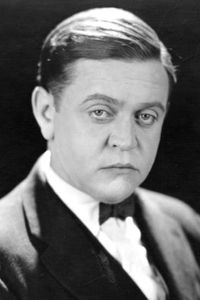Lloyd Hamilton, a luminary figure in the realm of silent era comedy, has regrettably succumbed to the passage of time, leaving behind a legacy that, despite its magnitude, has been somewhat eclipsed by the sands of forgetfulness.
Born in the year 1891 in the sun-kissed state of California, Hamilton's early life was marked by a fascination with the world of theater, where he began his professional journey as an extra in various productions.
As he matured, Hamilton's ambitions shifted towards the burgeoning world of cinema, where he made his debut at a remarkably young age.
While the exact timing of his entry into the film industry remains shrouded in mystery, Hamilton himself claimed to have started his career in 1914 with the esteemed Lubin Company.
Conversely, some sources suggest that he may have appeared in Frontier comedies as early as 1913, further muddying the waters of his early professional trajectory.
Nonetheless, it is undeniable that Lloyd Hamilton's contributions to the art form of silent comedy were substantial, and his legacy continues to captivate audiences to this day.
Hamilton's rise to prominence began in 1914, marking a pivotal moment in his career, as he collaborated with Bud Duncan in Kalem's groundbreaking 'Ham and Bud' series, a pioneering effort in the realm of film comedy, featuring one of the earliest permanent comedy duos in cinematic history.
This innovative series, which enjoyed a moderate level of success, spanned a period of three years, leaving behind a lasting legacy that, although its popularity has not endured over time, remains significant in that it offers valuable insight into Hamilton's artistic growth and development as a performer.
In the year 1917, Hamilton bid farewell to his tenure at Kalem and embarked on a new chapter at Fox, where he would come under the guidance of two esteemed industry professionals, Henry Lehrman and Jack White.
This marked the beginning of a fruitful collaboration between Hamilton, White, and Charley Chase, which would eventually give rise to the establishment of 'Mermaid Comedies' in 1920, a production unit exclusively dedicated to the creation of comedy shorts.
During this formative period, Hamilton continued to hone his craft, appearing in a string of films that would showcase his remarkable growth as a performer. Two notable examples from this era include the 1920 releases "Moonshine" and "The Simp", both of which would serve as a testament to his burgeoning talent.
By the year 1922, Hamilton had earned widespread acclaim as a "great comedy coup", and his unique screen persona had captured the attention of audiences far and wide. His on-screen character, a complex and multifaceted individual who embodied contradictions, was simultaneously bewildering and endearing, thereby rendering his comedic appeal universally relatable and accessible to both adults and children alike.
As Hamilton's fame continued to escalate, he began to contemplate the idea of launching his own production company, a notion that ultimately came to fruition in the mid-1920s. Concurrently, he made his debut in a feature-length film, specifically "The Darker Self", a cinematic endeavour that, despite being a commercial failure, did, however, effectively demonstrate his aptitude for producing high-quality short comedies.
Notwithstanding his remarkable on-screen accomplishments, the personal life of this individual was beset by turmoil and hardship. He struggled with a penchant for excessive drinking, which had a profound and detrimental impact on his family dynamics, leading to a series of tumultuous and often troubled marriages.
One of these marriages was particularly marked by controversy and conflict, ultimately resulting in a grueling and protracted two-year court battle. Unfortunately, his personal struggles continued to escalate, ultimately culminating in a series of events that led to his being banned from appearing on screen.
The catalyst for this ban was a tragic and senseless act of violence, in which a boxer lost his life in a brutal street fight involving this individual. This devastating incident served as a stark reminder of the devastating consequences that can arise from the intersection of personal turmoil and reckless behavior.
Notorious comedian, Hamilton, revived his career in 1929 by starring in a sequence of two-reel films for renowned producer, Mack Sennett, at Educational Films. This time, he appeared in sound pictures, showcasing his impressive vocal abilities. However, his tumultuous lifestyle was starting to take a devastating toll on his well-being.
Following the expiration of his contract with Sennett, rumors circulated that Hamilton was working on a new series for Hal Roach. Unfortunately, Roach declined to hire him due to his struggles with alcoholism. Tragically, Hamilton's life was marked by unemployment and poor health, ultimately culminating in his untimely death in 1935 at the age of 43.
Noted comedian Lloyd Hamilton, despite his relatively short-lived tenure in the spotlight, garnered widespread acclaim from his contemporaries, with none other than the renowned Charlie Chaplin publicly expressing his admiration, stating, "Lloyd Hamilton is the one actor of whom I am jealous." Fellow comedians Charley Chase and Buster Keaton also echoed their praise for Hamilton's remarkable work, solidifying his reputation as a talented performer of his time.
Tragically, despite his enduring legacy, Lloyd Hamilton's contributions to the world of silent comedy are often overlooked and underappreciated today, even among aficionados of the genre. This neglect can be attributed to the unfortunate lack of surviving material from his body of work, with the majority of his negatives destroyed in a devastating laboratory fire at Universal Studios shortly after his passing. This loss has resulted in a significant gap in our understanding and appreciation of Hamilton's unique brand of humor, leaving us with a tantalizing glimpse of what could have been.






















